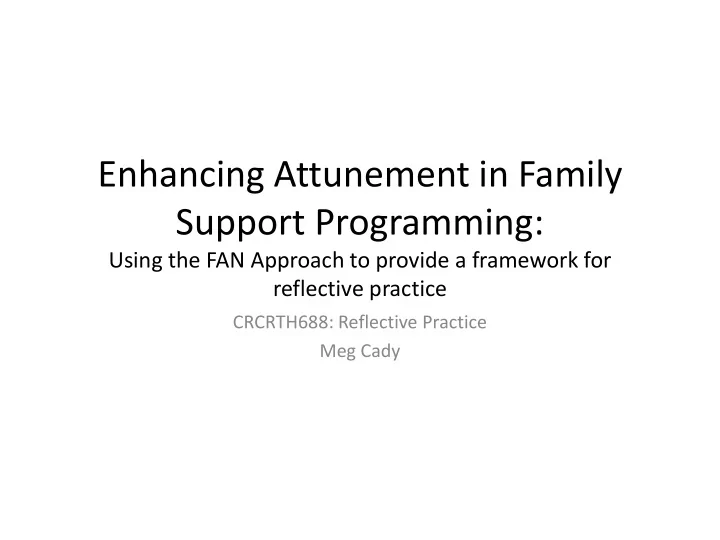

Enhancing Attunement in Family Support Programming: Using the FAN Approach to provide a framework for reflective practice CRCRTH688: Reflective Practice Meg Cady
Overview • Context: Family Support Programs • Approach: Facilitating Attuned Interaction • Integration: – Level of integration: Individual and System Wide – Reflective Process and next steps • Discussion • Questions and Feedback
Context • Statewide, universal, evidence based family support program • Comprehensive training structure and reflective supervision to support paraprofessional workforce • Strengths based, relational approach to working with families
Challenges • Staying present • Managing emotional reactions • Avoiding emotionally triggering situations • Responding in a manner that is directive, rather than reflective
Approach • Facilitating Attuned INteraction (FAN): – Developed by Linda Gilkerson at Erikson Institute – Model for attunement – Framework for reflective practice – Application in family support sessions and in reflective supervision – Focuses on parallel process
Facilitating Attuned INteraction (FAN) • Mindful Self-Regulation • Empathetic Inquiry • Collaborative Exploration • Capacity Building • Integration
Integration • Level of integration: – Individual: • Direct Supervision • Peer Support and Reflection – System Wide • Reflective Process and next steps
Application • A parent is concerned about how his daughter scored on a developmental screen. The father shares his concerns with during a family support session. The worker says, “Don’t worry about it. She’ll be fine. Here are some activities you can do with her.”
Focus on Feelings • How is the father feeling in this situation? • How is the family support worker feeling in this situation?
Conclusions and Next Steps • Discussion • Questions and Comments • Next Steps
Thank you for your time and feedback
Recommend
More recommend